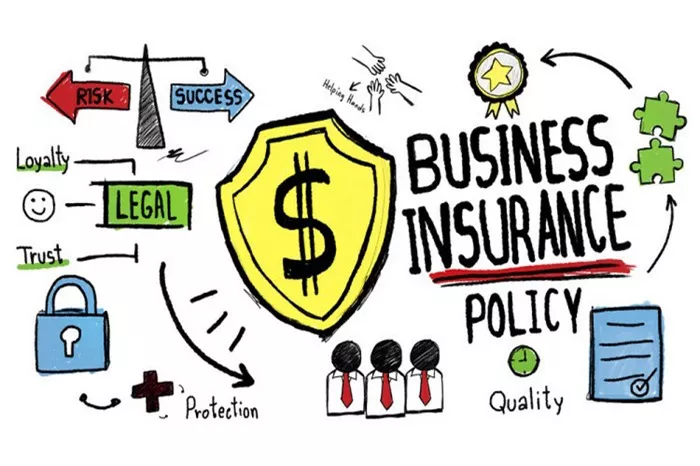In the realm of commercial insurance, the terminology can often be confusing for business owners and consumers alike. One of the most common questions arises around the concept of liability insurance and whether it constitutes “full coverage.” As an insurer and a commercial insurance expert, it is essential to clarify these terms, their implications, and their relevance to business risk management. This comprehensive discussion will explore the distinctions between liability insurance and full coverage, providing insights into the nature of each, their respective roles in risk management, and the broader context of commercial insurance.
Introduction
Insurance serves as a critical tool in risk management for businesses of all sizes. It provides financial protection against unforeseen events that could result in significant financial loss. Among the various types of insurance, liability insurance is a foundational component that protects businesses from claims resulting from injuries and damages to third parties. However, the term “full coverage” is often used in a more general context, leading to misunderstandings about what it actually entails.
To understand whether liability insurance is the same as full coverage, we must first define these terms clearly. We will explore the purpose and scope of liability insurance, the concept of full coverage, and how these two elements interact within the broader landscape of commercial insurance. By the end of this discussion, we aim to provide clarity on this important topic, helping business owners make informed decisions about their insurance needs.
What is Liability Insurance?
Definition and Purpose
Liability insurance is a type of insurance that provides protection to businesses and individuals against claims that they are legally responsible for causing harm to another person or their property. The primary purpose of liability insurance is to cover legal costs, settlements, and judgments that may arise from lawsuits filed against the insured party.
Liability insurance is crucial for businesses because it helps mitigate the financial risks associated with operating in an environment where accidents and unforeseen events can occur. In many cases, liability insurance is not just a prudent choice; it is a requirement for doing business, especially in industries where the risk of injury or damage is higher.
Types of Liability Insurance
There are several types of liability insurance, each designed to address specific risks:
General Liability Insurance (GLI): This is the most common form of liability insurance for businesses. It covers claims related to bodily injury, property damage, personal injury (such as slander or defamation), and advertising injury. GLI is essential for businesses that interact with customers or the public.
Professional Liability Insurance (PLI): Also known as errors and omissions insurance, PLI protects professionals against claims of negligence, errors, or omissions in the performance of their professional duties. This type of insurance is critical for service-oriented businesses, such as consultants, healthcare providers, and legal professionals.
Product Liability Insurance: This insurance covers claims arising from injuries or damages caused by products sold or manufactured by a business. It is particularly important for companies involved in the production and sale of goods.
Employer’s Liability Insurance: This coverage protects employers against claims made by employees for work-related injuries or illnesses not covered by workers’ compensation insurance.
Cyber Liability Insurance: In an increasingly digital world, this insurance protects businesses from claims related to data breaches, cyberattacks, and other technology-related risks.
Importance of Liability Insurance
Liability insurance is vital for several reasons:
Financial Protection: It provides a safety net for businesses, covering legal fees and settlements that could otherwise lead to significant financial strain.
Reputation Management: Liability insurance can help businesses manage their reputations during legal disputes by covering the costs associated with public relations efforts and legal defense.
Contractual Requirements: Many contracts, particularly in construction and service industries, require businesses to carry liability insurance. This requirement ensures that all parties are protected in case of unforeseen incidents.
Peace of Mind: Knowing that liability insurance is in place allows business owners to focus on their operations without the constant worry of potential legal claims.
What is Full Coverage?
Definition and Purpose
The term “full coverage” is often used in the context of auto insurance but can also apply to various types of insurance policies. Generally, full coverage refers to an insurance policy that provides extensive protection against a wide range of risks. However, it is essential to note that “full coverage” does not have a standardized definition and can vary significantly depending on the type of insurance and the specific policy.
In the context of auto insurance, full coverage typically includes:
Liability Coverage: This covers damages to other people and their property if the insured driver is at fault in an accident.
Collision Coverage: This covers damages to the insured vehicle resulting from a collision, regardless of fault.
Comprehensive Coverage: This protects against non-collision-related incidents, such as theft, vandalism, or natural disasters.
Uninsured/Underinsured Motorist Coverage: This provides protection if the insured is involved in an accident with a driver who has insufficient or no insurance.
In the context of commercial insurance, full coverage might refer to a combination of policies that provide comprehensive protection for a business, including liability insurance, property insurance, and other relevant coverages.
Importance of Full Coverage
The importance of full coverage lies in its ability to provide comprehensive protection against various risks. For businesses, having full coverage means being prepared for a wide range of potential liabilities and losses, which can help ensure their long-term viability.
Full coverage is particularly important for:
Businesses with Significant Assets: Companies with substantial physical assets or investments need comprehensive coverage to protect against potential losses.
High-Risk Industries: Businesses operating in high-risk industries, such as construction, healthcare, and manufacturing, benefit from full coverage to mitigate the unique risks they face.
Contractual Obligations: Many contracts require businesses to carry specific types of coverage, and having full coverage can help meet these requirements.
Comparing Liability Insurance and Full Coverage
Scope of Coverage
One of the primary distinctions between liability insurance and full coverage is the scope of coverage. Liability insurance is specifically designed to protect against claims arising from injuries or damages to third parties. In contrast, full coverage encompasses a broader range of protections, including liability coverage, property coverage, and other relevant protections.
For example, a business with general liability insurance is protected against claims related to bodily injury and property damage. However, if that business were to experience a fire that damages its own property, general liability insurance would not cover those losses. In contrast, a full coverage policy that includes property insurance would provide protection against such losses.
Types of Risks Covered
Liability insurance primarily addresses risks associated with third-party claims, while full coverage encompasses a wider array of risks.
Here are some key differences:
Liability Insurance: Covers claims made by third parties for bodily injury, property damage, and personal injury. It does not cover losses incurred by the insured business itself.
Full Coverage: Includes liability insurance but also covers property damage, loss of income, and other risks that could affect the business. This comprehensive approach ensures that the business is protected from various potential threats.
Legal and Financial Implications
The legal and financial implications of liability insurance versus full coverage can also differ significantly. Liability insurance generally covers legal defense costs and settlements related to third-party claims. However, it does not cover the costs associated with damage to the insured’s own property.
On the other hand, full coverage provides a more comprehensive safety net for businesses, covering a wider range of potential losses. This can be particularly beneficial in industries where the risk of both liability claims and property damage is high. In such cases, having full coverage can help prevent significant financial setbacks that could jeopardize the business’s future.
Regulatory and Contractual Requirements
In some industries, regulatory bodies may require businesses to carry specific types of liability insurance. For example, healthcare providers must have professional liability insurance to protect against malpractice claims. However, there may not be a requirement for “full coverage” in the same sense.
Contractual obligations can also vary. Many contracts require businesses to carry liability insurance, but they may not specify the need for full coverage. This distinction is essential for business owners to understand, as failing to meet contractual insurance requirements can result in legal and financial repercussions.
Cost Considerations
The cost of liability insurance versus full coverage can vary significantly based on several factors, including the type of business, the level of risk, and the specific coverage options selected. Generally, liability insurance tends to be more affordable than full coverage, as it covers a narrower range of risks.
However, the potential financial exposure associated with relying solely on liability insurance can be substantial. A business that opts for only liability coverage may save on premiums in the short term, but it could face significant financial challenges in the event of a large claim or loss that is not covered by its policy.
In contrast, while full coverage may come with higher premiums, it provides a more comprehensive safety net that can help protect against a wider array of risks. Business owners must weigh the cost of premiums against the potential financial exposure they face and determine the best approach for their specific situation.
See Also: What Does Liability Insurance Cover For Homeowners
The Importance of Tailored Coverage
Given the differences between liability insurance and full coverage, it is crucial for business owners to consider their specific needs and risks when selecting insurance coverage. A one-size-fits-all approach may not be suitable for every business, and tailored coverage can provide the best protection.
Assessing Business Risks
To determine the appropriate level of coverage, business owners should conduct a thorough assessment of their risks.
This assessment should include:
Industry-Specific Risks: Understanding the unique risks associated with the industry in which the business operates is essential. For example, a construction company faces different risks compared to a consulting firm.
Operational Risks: Evaluating the day-to-day operations of the business can help identify potential liabilities. This includes assessing the physical location, the nature of the services provided, and the interactions with clients and customers.
Asset Exposure: Identifying the business’s assets, including property, equipment, and inventory, can help determine the need for property coverage as part of a full coverage policy.
Consulting with Insurance Professionals
Business owners should consider consulting with insurance professionals to gain insights into the best coverage options for their specific needs. Insurance agents and brokers can help evaluate risks, recommend appropriate coverage levels, and ensure compliance with any regulatory or contractual requirements.
By working with professionals, business owners can better understand the nuances of liability insurance and full coverage, enabling them to make informed decisions that align with their risk management strategies.
Conclusion
In conclusion, liability insurance and full coverage are not synonymous; they serve different purposes within the broader context of commercial insurance. Liability insurance provides essential protection against claims arising from injuries and damages to third parties, while full coverage encompasses a wider range of protections, including liability coverage, property coverage, and other relevant risks.
Understanding the distinctions between these two types of insurance is crucial for business owners seeking to safeguard their assets and manage their risks effectively. By conducting a thorough assessment of their unique risks, consulting with insurance professionals, and selecting the appropriate coverage options, business owners can ensure they have the right protection in place.
In an increasingly litigious environment, having the right insurance coverage is not just a matter of compliance; it is a strategic investment in the future of the business. Whether opting for liability insurance, full coverage, or a combination of both, the goal should always be to create a robust risk management strategy that protects the business from the unforeseen challenges that may arise in the course of operations.
Related Topics:






















